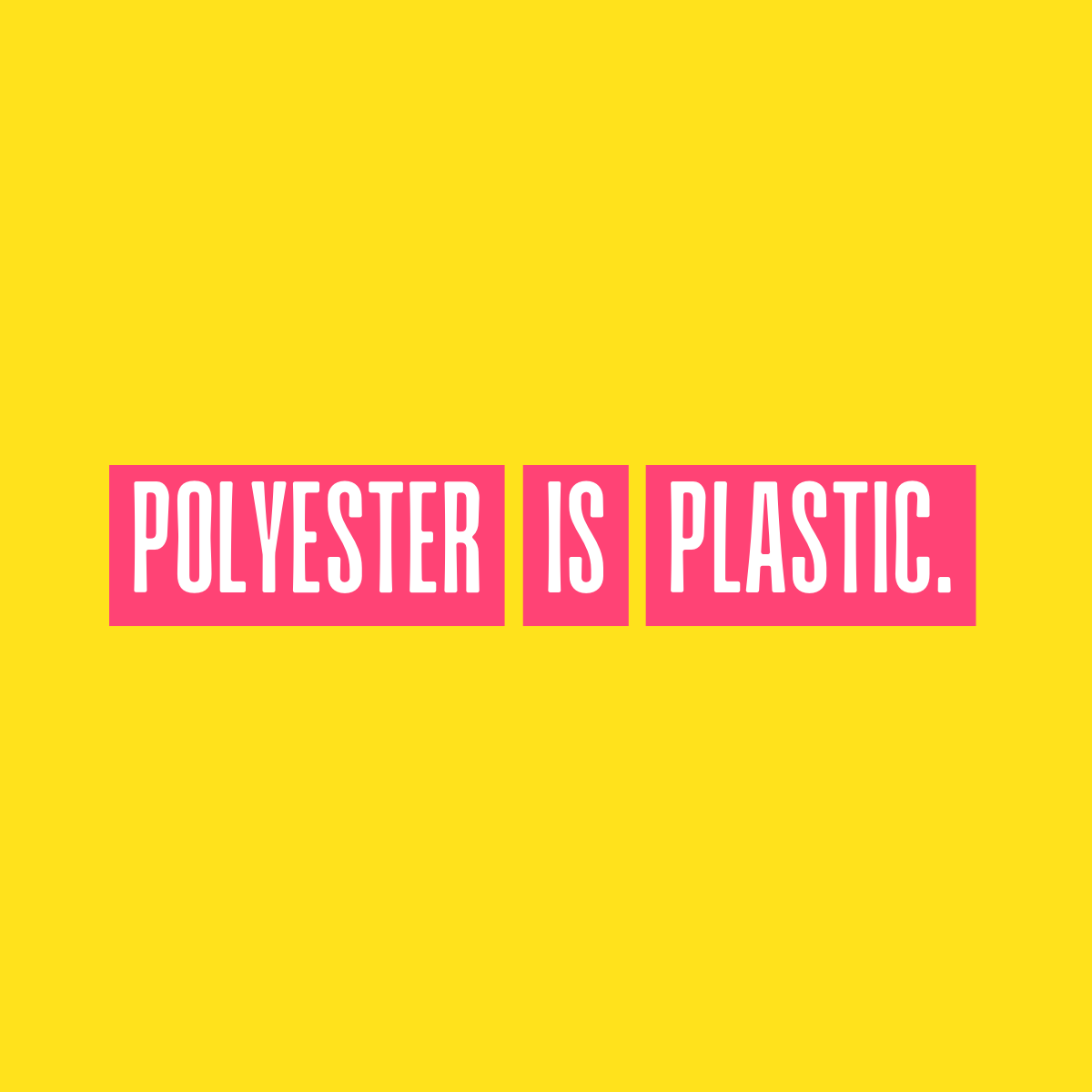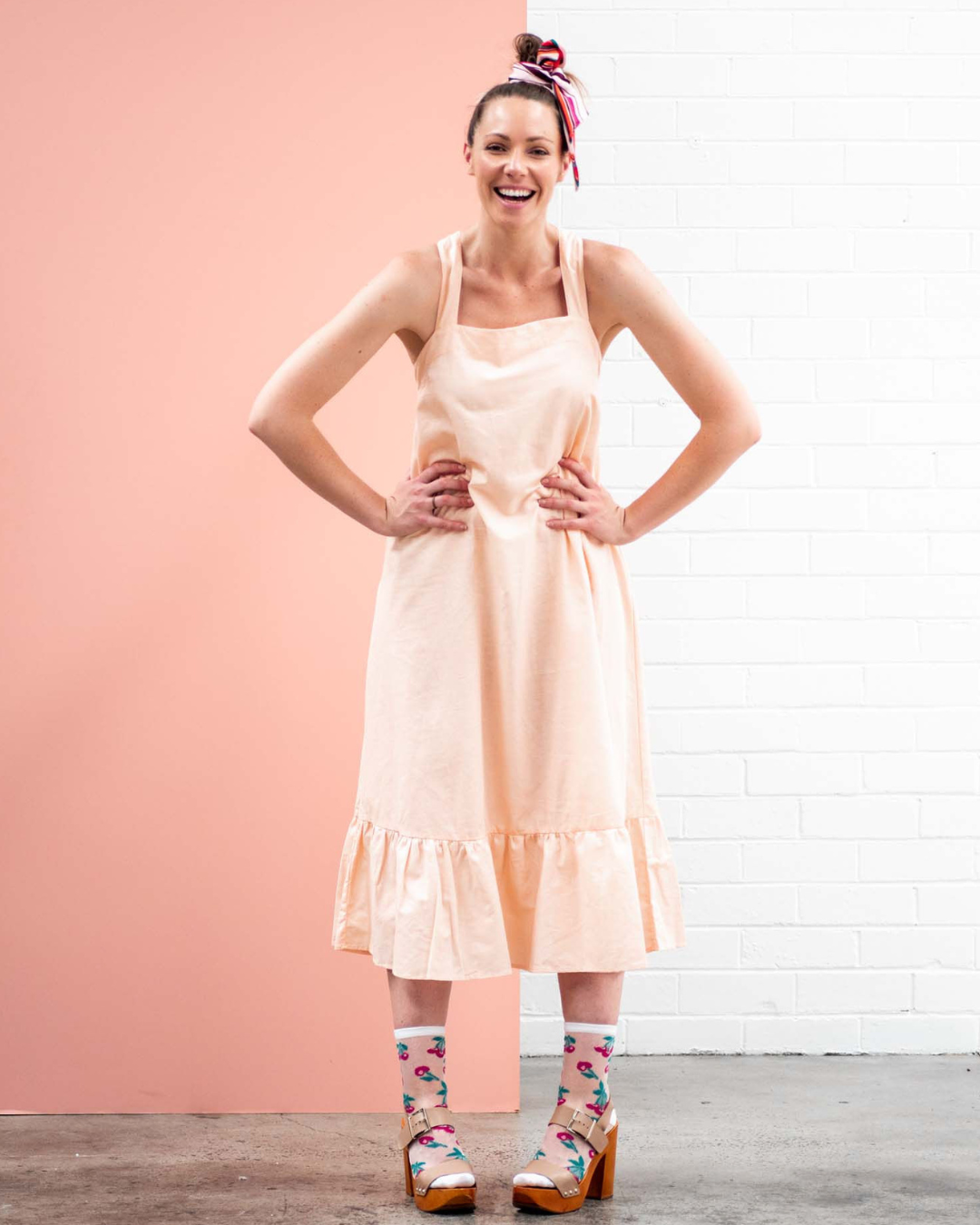Polyester is plastic. And fast fashion is full of it.
We don’t talk about it enough—but we should. Because most of what’s being sold as 'fashion' isn’t made from fabric. It’s made from plastic. And if you’re someone who cares about people and the planet, it's a pretty big problem.
When you think you’re getting a bargain—a $5 dress, a silky-feel blouse, cheap leggings—what you’re often buying is a synthetic, petroleum-based material that’s cheap to make, bad for your skin, and worse for the environment. It doesn’t break down. It doesn’t biodegrade. It doesn’t disappear.
Polyester is a man-made fibre. It’s plastic turned into thread, woven into fabric, and sold as clothing.
It’s used in more than 70% of all garments globally, from activewear to evening dresses and most of the time, you can't even tell.
The fashion industry uses over 70 million barrels of oil every year just to produce polyester. That’s the same oil we know is fuelling climate change, ocean spills, and the fossil fuel industry. But it’s being quietly spun into clothes and sold at prices too good to be true.
But polyester isn't just bad because it's made from plastic.
It’s a problem because of what it does during its life, and long after you’ve finished wearing it.
Every time you wash a polyester garment, it sheds microplastics—tiny plastic particles that are too small to be filtered out by washing machines or wastewater systems. These particles end up in rivers, oceans, the water we drink and the fish we eat.
In the last few years, studies have proven that microplastics are ending up in our bloodstream, and the average person now consumes a credit card’s worth of plastic every week—just from microplastics in the environment. Polyester plays a huge part in that.
It also traps heat and sweat (because it’s plastic), and when it’s blended with natural fibres to make it feel softer or more breathable, it becomes nearly impossible to recycle—so it's not recycled and it's trashed instead.
And then there’s the health impact.
Polyester is made using chemicals like ethylene glycol and terephthalic acid—substances that can cause skin irritation, disrupt hormones, and linger in the body. If you wouldn’t rub plastic and toxic chemicals directly on your skin, it’s worth thinking twice about wearing them.
So why is polyester everywhere? The short answer is—money.
Polyester is cheap to produce, fast to manufacture, and ticks a lot of boxes for fast fashion brands. It doesn’t wrinkle easily. It holds colour well. It can be made to look like silk, cotton, linen—almost every natural fibre.
That’s why brands like Temu, Shein and other ultra-fast fashion giants use it in almost everything they sell. Polyester makes it easier to treat clothing as disposable. And that’s exactly how the fast fashion model is designed to work.
But this isn't just a fashion issue.
It’s easy to dismiss this as fashion's problem. But it’s so much bigger than that.
It’s an environmental issue. It’s a health issue. It’s a human rights issue.
When clothes made from plastic are produced in the billions, worn once or twice, then dumped or burned, it creates a ripple effect across ecosystems, economies, and generations.
If we care about sustainability, if we care about the future, we have to look at the materials we’re wearing—not just the brands, the cuts, or the styles.
And there is another way.
I’m not here to make you feel guilty. I know how hard it can be to make ethical choices when the budget is tight or the industry feels stacked against you. This isn’t about perfection—it’s about awareness.
Here’s what you can do...
- Choose natural fibres. Look for organic cotton, hemp, linen, bamboo, or TENCEL. These fabrics breathe better, feel better, and break down naturally at the end of their life.
- Support slow fashion brands. Every time you buy from a small label that cares about sustainability, you’re supporting a better system. Better wages. Better materials. A better future.
- Read the label. Get into the habit of checking fabric content. If it says polyester, acrylic, nylon—know that you're buying plastic. That knowledge alone can change how you shop.
- Talk about it. Share what you know. Post about it. Educate your customers, your community, your kids. Awareness leads to action.
The fashion industry has normalised polyester because it’s profitable. But that doesn’t mean we have to accept it.
If we want fashion to be part of the solution—not the problem—we have to change the way we shop, change the way we design, change what we accept, because plastic doesn’t belong in pants. Or skirts. Or shirts. Or anywhere near our skin or oceans.
And every time you choose a natural fibre, support a small ethical brand, or raise your voice, you're helping change the system. Conversations can create change—let's have the uncomfortable ones.
Claire x




